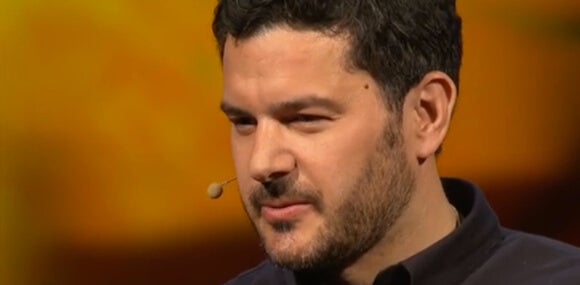Matternet CEO Tells TED Global Internet of Drones Could Positively Impact a Billion
A billion people have no access to all-season roads. Over three billion live in cities or megacities. Quick access to goods faces either impassible mud or impenetrable gridlock. But Singularity University Labs startup, Matternet, has a plan. Speaking to an audience at TED Global last summer, co-founder and CEO, Andreas Raptopoulos said Matternet is “a new idea about a network for transportation that is based on the ideas of the internet.”

Share
A billion people have no access to all-season roads. Over three billion live in cities or megacities. Quick access to goods faces either impassible mud or impenetrable gridlock. But Singularity University Labs startup, Matternet, has a plan.
Speaking to an audience at TED Global last summer, co-founder and CEO, Andreas Raptopoulos said Matternet is “a new idea about a network for transportation that is based on the ideas of the internet.”
Instead of packets of information, Matternet will transport goods using a network of autonomous electric drones, landing stations, and an operating system to keep it all running.
Drones would deliver medicine in developing countries with poor road infrastructure, in urban environments, even after natural disasters. Matternet estimates they can move two kilograms 10 kilometers for just $0.24.
Their tagline is “drones for good,” and one can see the appeal. In sub-Saharan Africa, 80% of roads are unusable in the wet season, Raptopoulos said. It may take an estimated 50 years and billions of dollars to catch-up on road infrastructure.
But it could be said hardwired telecommunications infrastructure faced a similar battle a decade ago. Cell phone technology “leapfrogged” hard lines in favor of wireless in developing countries. Might robotic drones do the same for roads?
Be Part of the Future
Sign up to receive top stories about groundbreaking technologies and visionary thinkers from SingularityHub.


Matternet conducted its first trials in Haiti last summer and have since garnered funding and expanded their team. Co-founder, Paola Santana, told me they’ll have some tech updates in the beginning of 2014.
It’s an audacious plan and not without its challenges. The network will need to find consistent energy sources in rural areas during bad weather. The drones have to be tough enough to put up with high winds and rain.
And what’s to prevent thieves from picking up a drone and walking home with it. Security guards? Fences? Might that up the cost of the network? Then they'll need to overcome the regulatory issues and controversy surrounding drones.
Raptopoulos said they didn’t shy away from the challenge when they were told it was a crazy idea early on. Quite the opposite. Challenges can be overcome, and Matternet’s impact could be significant.
“Imagine one billion people being connected to physical goods in the same way mobile telecommunication connected them to information.”
Jason is editorial director at SingularityHub. He researched and wrote about finance and economics before moving on to science and technology. He's curious about pretty much everything, but especially loves learning about and sharing big ideas and advances in artificial intelligence, computing, robotics, biotech, neuroscience, and space.
Related Articles

This Light-Powered AI Chip Is 100x Faster Than a Top Nvidia GPU

These Robots Are the Size of Single Cells and Cost Just a Penny Apiece

Hugging Face Says AI Models With Reasoning Use 30x More Energy on Average
What we’re reading

